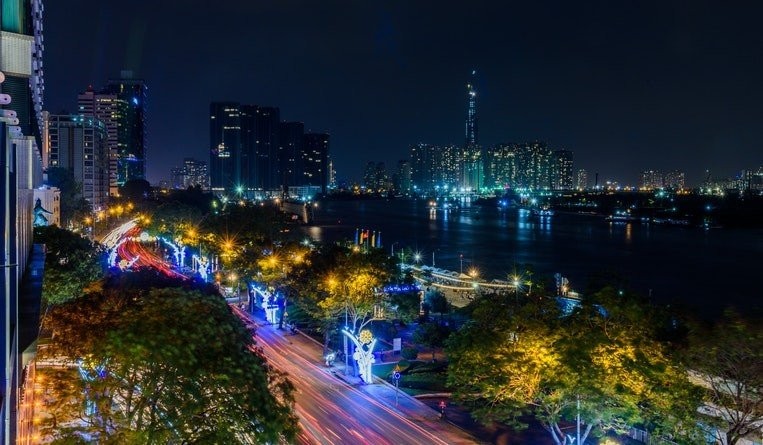Vietnam’s IP office issues Notice 13822
29 December 2020

On November 23, 2020, the Intellectual Property Office of Vietnam (VNIPO) issued Notice No. 13822/TB-SHTT providing for more stringent requirements on local and foreign applicants, legal representatives and the documents they submit for IP registrations.
According to Xuan Duc Nguyen, managing partner at Ageless IP Attorneys & Consultants in Hanoi, there wasn’t a clear problem with the IP registration process in Vietnam to spur the VNIPO to issue the Notice.
Previously, the requirements as per documents submitted by domestic and foreign applicants were different.
Domestic applicants had to submit documents which complied with the Civil Code, Enterprise Law and IP Law of Vietnam. Signatories should be the individual applicant or the organization’s legal representative(s) or any person within the organization or enterprise with evidence of authorization from the legal representative.
On the other hand, foreign applicants only needed to submit transaction documents with full information, signature and seal, if any. Additional documents showing evidence of authorization were not required.
“In the light of above, it can be temporarily explained that the VNIPO would like to uniformly apply the regulations on the person signing transaction documents to the two above groups of applicants,” said Xuan.
He said his firm believes the new provisions in Notice 13822 are unreasonable.
First, it is not appropriate for foreign applicants in legal and practical terms, he said.

“Pursuant to Articles 683 and 684 of the 2015 Civil Code, Vietnamese law recognizes the application of foreign laws in Vietnam, thereby recognizing the legal validity of transaction documents if they comply with regulations of a certain country,” he explained.
Regulations on legal representatives also vary from country to country.
In Japan, a manager has the authority to perform judicial and non-judicial acts on behalf of his organization in connection with the business in which it operates.
In Singapore, each director in the organization’s Board – be it the CEO, chief human resources officer, sales manager, etc. - has the right to act on behalf of the company on matters within the scope of his powers.
In the US, the executives are the legal representatives of the company within their assigned jurisdiction. These include the general director, president, vice president, CFO and others.
“Thus, according to foreign laws, legal representative will not be limited to persons with titles listed in Notice 13822,” said Xuan. “Therefore, it is unreasonable to impose the application of domestic laws on transaction documents of foreign applicants.”
The titles listed in the Notice are chairman of member council, chairman of the board of directors, president, director and general director.
On a practical level, Xuan said that the requirement for foreign corporations that the person with the highest title will sign the transaction documents will lead to difficulties. This is especially true for large foreign companies with complex organizational structures.
“At the same time, at these corporations and enterprises, specialized departments may also be authorized to sign all necessary documents and transaction documents,” Xuan added. “This authorization is usually specified in company charters.”
Notice 13822 is also not appropriate for copies of the document specified under the prior application, which has been duly accepted.
According to Xuan, his firm has received Notices of Refusal in relation to the titles of the documents’ signatories following the issuance of the Notice. These documents were already accepted by the VNIPO for prior applications and the office had also issued Notices of Refusal of the matter during the period of substantive examination. As such, the VNIPO had requested the applicant to provide documents proving that the signatories are legal representatives or authorized by a legal representative.
“We deem that such application is not reasonable because the assessment and acceptance of transaction documents at the stage of formality examination shows that the VNIPO has recognized the validity of these documents, the review and re-examination of these documents resulted in prolongation of processing applications, and it also creates inequalities in rights establishment procedures among applicants,” explained Xuan.
The Notice also fails to specify which types of evidences and their formalities will be accepted.
Additionally, the request for consular certification and legalization of documents exceeds the provisions of legal documents on IP which makes administrative procedures complicated.
“According to the provisions of Circular No. 01/2007/TT-BKHCN which is a document with higher legal validity than Notice 13822, the Power of Attorney only requires signatures, full name, title, and seal, if any, of the legal representative of the principal. In addition, with the policy of ‘simplifying administrative procedures’ of the Vietnamese Government, the request for consular certification and legalization of documents has been incompatible with the above policy, increased the burden on the applicants, especially in the current global infection of Covid-19 and its economic impacts,” Xuan explained.
That the Notice does not mention its date of effectivity also presents a problem.
“This made us extremely confused in the implementation and explanation of this change to clients. In fact, before the issuing date of this Notice, we have received Notice of Refusal relating to signatories that are inconsistent with Notice 13822. We believe that Notice 13822 intends to notify the change in the assessment practice of the VNIPO, and this change will affect the applicant’s obligations, namely the obligation to provide evidences. Therefore, a certain period is required for applicants to prepare and adapt to the change before the Notice comes into force,” he said.
The Vietnamese government issued the Notice as part of its Intellectual Property Strategy 2030 launched in August 2019.
Espie Angelica A. de Leon






